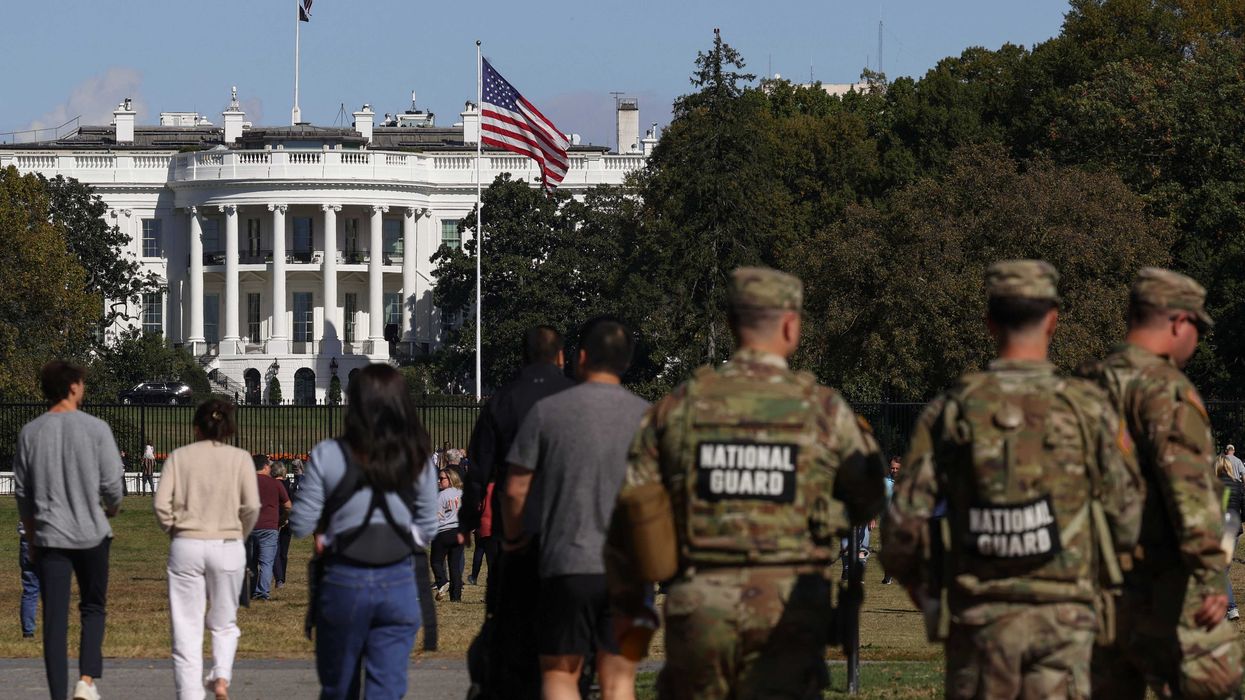
I saw some of my former Naval War College colleagues at the recent No Kings rally in Providence. Given that National Guard troops and protestors had clashed in Los Angeles at an earlier June rally protesting ICE raids, we wondered whether we would see National Guard troops as we marched, where they would be from, and their mission? We didn’t. That doesn’t mean, however, that there is no need for concern about the future.
The National Guard is unique to the U.S. military given it is under the authority of both state governors and the federal government and has both a domestic and federal mission. Governors can call up the National Guard when states have a crisis, either a natural disaster or a human-made one. Federal authorities can call on the National Guard for overseas deployment and to enforce federal law.
President Dwight Eisenhower used both federalized National Guard units and regular U.S. Army units to enforce desegregation laws in Arkansas in 1957. But using military troops to intimidate citizens and support partisan politics, especially by bringing National Guard units from other states has never been, and should never be, part of its mission.
But that’s what is happening now.
A host of Democratic U.S. senators, led by Dick Durbin of Illinois, ranking member of the Senate Judiciary Committee, and Jack Reed of Rhode Island, ranking member of the Senate Armed Services Committee, has called for an inquiry into the Trump administration’s recent domestic deployment of active-duty and National Guard troops to Chicago, Los Angeles, Washington, D.C., Portland, Oregon, and Memphis, Tennessee.
In an Oct. 17 letter to the Defense Department’s Inspector General, the senators challenge the legality of the domestic troop deployment and charge that it undermines military readiness and politicizes the nation’s military.
Ostensibly, the troops have been sent to cities “overrun” with crime. Yet data shows that has not been the case. Troops have been sent to largely Democratic-run cities in Democratic-led states.
The case for political theater being the real reason behind the deployment certainly was strengthened when largely Republican Mississippi sent troops to Washington D.C., even though crime in Mississippi cities like Jackson is higher than in D.C. Additionally, there is an even more dangerous purpose to the troop presence — that of normalizing the idea of troops on the streets, a key facet of authoritarian rule.
There are fundamental differences in training and mission between military troops and civilian law enforcement, with troop presence raising the potential for escalation and excessive force, and the erosion of both civil liberties and military readiness.
Troop deployments have hit some stumbling blocks. Judges, including those appointed by President Donald Trump, have in cases like Portland impeded administration attempts to send troops. Mayors and governors, including Chicago Mayor Brandon Johnson and Illinois Gov. JB Pritzker, have pushed back as well.
While the Trump administration has shown its willingness to ignore the law, it has also shown a significant ability to come up with a “Plan B.” In this case, Plan B, used by many past dictators, is likely the utilization of private military companies (PMC).
Countries have used these mercenary organizations to advance strategic goals abroad in many instances. Though the Wagner Group, fully funded by the Kremlin, was disbanded after a rebellion against the regular Russian military in 2023, Vladimir Putin continues to use PMCs to advance strategic goals in Ukraine and other regions of the world wrapped in a cloak of plausible deniability. Nigeria has used them internally to fight Boko Haram. The United States used Blackwater in Afghanistan in the early days after 9/11. Overall, the use of PMCs abroad is highly controversial as it involves complex tradeoffs between flexibility, expertise and need with considerable risks to accountability, ethics and long-term stability.
Domestically, the use of PMCs offer leaders facing unrest the advantage of creating and operating in legal “gray zones.” Leaders not confident of the loyalty of a country’s armed forces have resorted to these kinds of private armies. Adolf Hitler relied on his paramilitary storm troopers, or “brown shirts” to create and use violence and intimidation against Jews and perceived political opponents. Similarly, Benito Mussolini’s “black shirts,” Serbian paramilitaries, and PMCs in Muammar Gaddafi’s Libya served similar purposes.
President Donald Trump has said he is “open” to the idea of using PMCs to help deport undocumented immigrants. He has militarized Homeland Security agents to send to Portland, evidencing his willingness to circumvent legal challenges. And perhaps most glaringly, poorly qualified and trained masked Immigration and Customs Enforcement (ICE) agents are already terrorizing American cities.
At the No Kings rally in Providence my former colleagues and I did see a man in an unfamiliar uniform — with a gun and handcuffs — standing alone on the sidewalk along the march path. He wasn’t doing anything threatening, just watching. In the past, he might not have even been noticed.
But that day he was. Some people even waved to him. Protestors are not yet intimidated, but they are wary, and rightfully so.
Be aware, America. They have a Plan B.
- Joan Johnson-Freese of Newport is professor emeritus of national security affairs at the U.S. Naval War College and a Senior Fellow at Women in International Security. She earned a Ph.D. in international relations and affairs from Kent State University. She is an adjunct Government Department faculty member at Harvard Extension and Summer Schools, teaching courses on women, peace & security, grand strategy & U.S. national security and leadership. Her book, “Leadership in War & Peace: Masculine & Feminine,” was released in March 2025 from Routledge. Her website is joanjohnsonfreese.com.



